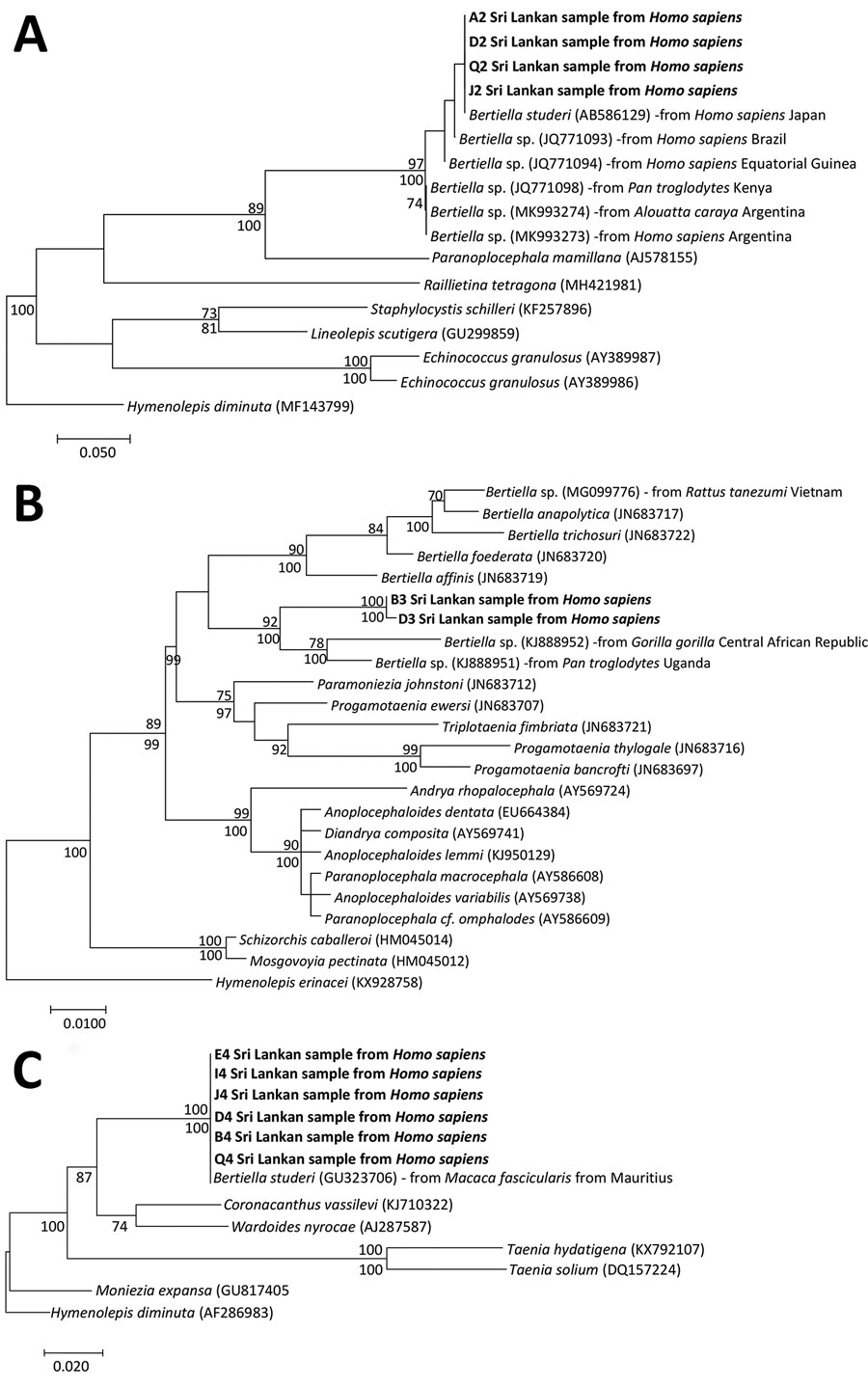Volume 26, Number 8—August 2020
Dispatch
Bertiella studeri Infection in Children, Sri Lanka
Figure 2

Figure 2. Molecular phylogeny of the nuclear ribosomal markers in study of Bertiella tapeworms in children in Sri Lanka. Bold text indicates Bertiella studeri samples from Sri Lanka. A) Maximum-likelihood tree containing 17 taxa, constructed by the analysis of partial ITS2 sequence alignment. B) Maximum likelihood tree containing 24 taxa, constructed by the analysis of partial 28S sequence alignment. C) Maximum-likelihood tree containing 13 taxa, constructed by the analysis of partial 18S sequence alignment. Numbers above the nodes indicate the percentages of 1,000 nonparametric bootstrap pseudoreplicates (>70) and below the nodes the percentages of 1,000 Bayesian posterior probabilities (>70). GenBank accession numbers are provided for reference sequences. Scale bars represent nucleotide divergence.